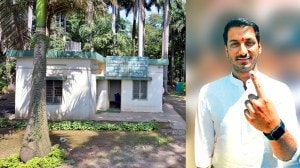Change of heart
It looks like a tactical retreat. The Sri Lankan government insists it still intends to bring forward its new constitutional proposals in ...

It looks like a tactical retreat. The Sri Lankan government insists it still intends to bring forward its new constitutional proposals in the current session of parliament. But the postponement on Wednesday of a crucial first-stage debate on a new Constitution Bill is an unfortunate development. The decision appears to have been forced on the government by opposition to the Bill inside and outside the House. This evident setback to President Chandrika Kumaratunga is likely to encourage more negative rhetoric inside the House and larger demonstrations in the street by Buddhist monks. So it is hard to conceive of conditions becoming more favourable for a vote on the new legislation in the next few weeks before the end of the parliamentary session. Postponement is a disheartening sign of the breakdown of the hard-won consensus between leaders of the country’s two major parties, the ruling People’s Alliance and the United National Party, on a structure of autonomous regions within a unitary state which comesclosest to meeting the aspirations of the minority Tamils.
After decades of suicidal political manoeuvres by the Sinhala politicians, hopes of a breakthrough on the ticklish autonomy issue were raised when Ranil Wickramasinge, UNP leader, appeared to support draft proposals during discussions with President Kumaratunga. When it came to the crunch, however, when the bold and visionary were called to stand up to be counted, Wickramasinge had a change of heart. It may have been a delayed attack of populism or the impact of protest chants by the monks; if he had genuine second thoughts, it was the worst possible moment for a responsible leader to discover it.
A sufficient number of UNP dissidents, wiser than their leaders, may be willing eventually to support the government and ensure the passage of the Constitution Bill. That at any rate is what the government has been led to believe. Obviously a transparent, honourable agreement between the two major parties is the best way to fully reassure the Sinhala majority that their interests are protected and also to withstand efforts by the clergy and the extremist Janata Vimukti Peramuna to present devolution as a sell-out. However, if consensus remains elusive, Kumaratunga will have no choice but to grasp the helping hands of UNP rebels to usher in major constitutional change. Deferring a vote on the Bill gives the government a fresh opportunity to build broader support for it in two ways.
One is to re-engage the UNP — as also Tamil parties which are holding out — in discussion and remove their qualms but without watering down the original scheme. Kumaratunga can also decide to take the issue to the people in the next elections and hope to return with a strong mandate for constitutional restructuring. Both courses are fraught with risk. She will need almost superhuman strength to prevent a temporary retreat from becoming a disorderly rout. The Constitution Bill represents the best hope of ending a long and bloody conflict. It should be saved to bring about change peacefully with the willing participation of the Sinhala and Tamil people.



- 01
- 02
- 03
- 04
- 05




























